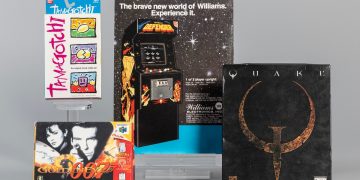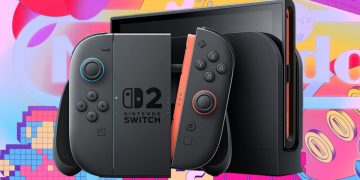In the unpredictable world of sovereign computing, efforts can either flounder due to insufficient resources or end up replicating existing models, losing their uniqueness. This is the dilemma faced by the Russian gaming industry following President Putin’s directive to create a homegrown game console. They’ve decided to tackle the challenge from two angles. According to Habr.com, one approach involves crafting a sovereign console built around the dual-core Elbrus processor. Meanwhile, an RBC report highlights a parallel effort to establish a cloud gaming service using inexpensive consumer hardware and claiming it as sovereign.
Russia’s ambitious new console is set to utilize the Elbrus processor, designed with a Very Long Instruction Word (VLIW) microarchitecture that is typically suited for robust, mission-critical applications. However, when it comes to gaming, the Elbrus leaves much to be desired. Benchmarks consistently indicate that its performance is “completely unacceptable” for most gaming applications.
Realistically, this upcoming console is not going to rival the likes of the PlayStation 5 or the Xbox Series X|S. Consequently, Russian officials are urging developers to think outside the box to confront the performance disparity.
Anton Gorelkin, Deputy Chairman of the State Duma Committee on Information Policy, stated, “I hope my colleagues treat this assignment with the utmost diligence and craft something truly innovative. It’s clear to everyone that Elbrus processors aren’t ready to stand toe-to-toe with the PS5 or Xbox. This means we need a creative solution.”
Such innovation might involve simplifying games to a point where the Elbrus CPUs can manage them. However, given that Russian gamers still have access to world-class titles, these ‘simplified’ games may not attract much interest. Alternatively, utilizing cloud-based rendering and computing could be a path forward—though this would require gamers to have high-speed, low-latency internet connections.
Interestingly, Gorelkin also highlighted the potential for the console to serve not just as a relic for older games but as a means to elevate Russian-made games.
Shifting our focus to yet another development in this domain, MTS—a leading Russian telecommunications company—is in the process of designing its gaming console. This product, named the MTS Fog Play platform, is transparently a cloud-based gaming service.
The console is equipped with basic hardware and an Xbox-like controller, retailing for about $50. With such a price point, it’s unrealistic to expect the console to run even basic Android games without assistance. Thus, it relies on MTS’s cloud gaming service, which supports both direct gaming and a rental model. This allows those with high-end PCs to rent and play games, leveraging their existing hardware.
While neither of these consoles has hit the market yet, we’re eager to see how they perform once they do and will be sure to share the benchmarks as they become available.










![[PS5] Lost Records: Bloom and Rage – Tape 2: A Review [PS5] Lost Records: Bloom and Rage – Tape 2: A Review](https://www.nerdfront.net/wp-content/uploads/2025/05/PS5-Lost-Records-Bloom-and-Rage-–-Tape-2-A-360x180.jpg)




































